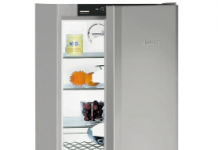 Oftentimes, we have all been victims of power outages, and of sudden cuts in the power supply.
Oftentimes, we have all been victims of power outages, and of sudden cuts in the power supply.
These are times when we have sweated it out silently and furiously, not knowing what to do about the interruption in power supply.
We have also thought often enough about acquiring a portable home generator, a device that would offer us constant and uninterrupted power supply when the power has been cut off for some reason.
If you are thinking of buying a home generator, then there are some things you need to know:
- There are two types of generators. While one is a portable one, which you can simply install yourself, the other is a larger stationary generator that is connected to the power supply at your home. A qualified electrician would have to connect this for you, while you could easily connect the portable one yourself.
- Next, you have to know about the types of fuels that generators use: gasoline, diesel, natural gas and liquefied petroleum gas. You can choose the type of fuel you want to use by the fuels that are available in your area. After all, there is no point in buying a generator that you cannot use because fuel is not available, is there?
- Now, decide on the size of the home generator you want to use. To determine this, do this: total the wattage of the maximum number of appliances that you will run at the time of the power cut. This will give you an idea of the size your generator has to be. At this time, decide whether you will want to use your air conditioner, washing machine and other such appliances during the power cut, keeping in mind the fact that these appliances take a greater load of electricity than your average lamps and fans.
After determining the type and size of the home generator you want to acquire, you must make a short list of safety tips when you are using the generator:
- Try to never exceed the rated capacity of the home generator.
- If you want to use electrical appliances during the power failure, plug in the larger appliance first, and then the other smaller ones, gradually.
- Make sure that your generator is grounded. This will help prevent accidental electrical shocks.
- Make sure that everything is plugged in and that nothing is hanging loose anywhere before you start your home generator.
With these safety tips in mind, you can buy yourself a brand new home portable generator, and become magically free of those irritating power cuts forever.








